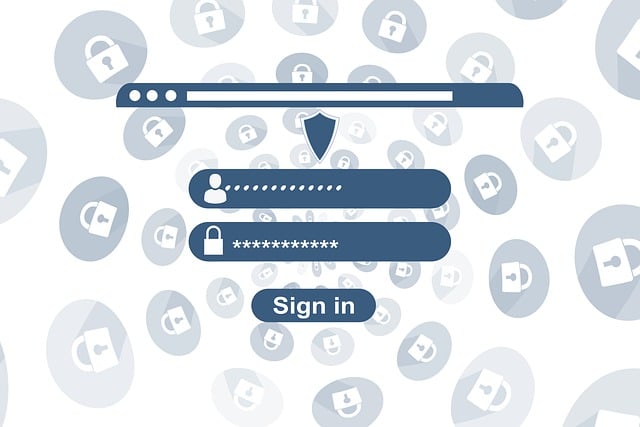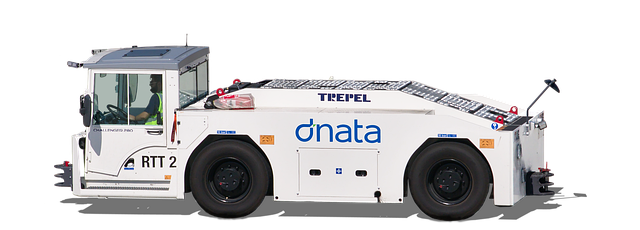The article provides a comprehensive guide on obtaining a car inspection at the Department of Motor Vehicles (DMV), emphasizing the importance of adhering to state-specific safety and emissions standards. It explains how DMV services have been enhanced with modern technologies such as online appointment systems, mobile, and drive-through inspection facilities to accommodate various schedules and situations, ensuring minimal inconvenience for drivers. Motorists are advised to prepare their vehicles by checking lighting systems, braking components, tire conditions, and emissions before the inspection. On the day of the inspection, it's crucial to bring all necessary paperwork, including registration and proof of insurance, and stay with the vehicle to address any queries or issues that arise. The article also notes the advancements in DMV services, with more accessible and efficient scheduling options designed to keep drivers compliant with state regulations. It underscores the importance of staying informed about inspection requirements as they evolve and encourages drivers to utilize these modernized services to maintain road legality and avoid penalties. Regular vehicle maintenance is highlighted as key to continuous compliance and safety on the roads.
Navigating the complexities of vehicle maintenance, particularly when it comes to DMV car inspections, is a critical aspect of responsible car ownership. As registration renewal approaches, staying abreast of inspection requirements ensures both legal compliance and vehicle safety. States are increasingly facilitating this process with convenient reminders and diverse scheduling options, including mobile and drive-through services. This article delves into the essentials of DMV car inspections, from understanding the latest requirements to preparing your vehicle and effectively booking your inspection online. We’ll explore the latest advancements in inspection services and provide clear guidance on what to anticipate during the evaluation. Additionally, we’ll keep you informed on upcoming changes to regulations to help maintain your registration without delay or penalty, ensuring your vehicle remains a safe companion on the road.
- Understanding DMV Car Inspection Requirements
- Preparing Your Vehicle for DMV Inspection
- Scheduling Your DMV Car Inspection Online
- Mobile and Drive-Through Inspection Services
- What to Expect During a DMV Car Inspection
- Staying Compliant: Upcoming Changes in Inspection Regulations
- Avoiding Penalties with Timely DMV Inspections
Understanding DMV Car Inspection Requirements

Navigating the DMV car inspection process involves familiarizing oneself with the specific requirements set forth by individual states. These requirements can encompass a variety of safety and emissions standards that vehicles must meet to ensure roadworthiness and environmental compliance. To facilitate this, many states now incorporate reminder systems within their DMV registration services, prompting vehicle owners when an inspection is due. This proactive approach helps prevent oversights that could lead to lapsed registrations or overdue inspections.
For those concerned with convenience, advancements in scheduling options provide a more streamlined experience. Drivers can now choose from traditional fixed-site inspections, mobile services that travel to specific locations within the community, and even drive-through facilities where vehicles are examined while waiting from the comfort of their own car. These innovations cater to a variety of schedules and circumstances, making it easier for vehicle owners to adhere to inspection mandates without significant disruption to their daily routines. Understanding these options and staying informed about the latest requirements is key to maintaining compliance and ensuring that your vehicle remains in good standing with the DMV.
Preparing Your Vehicle for DMV Inspection

Prior to scheduling your DMV car inspection, it’s crucial to prepare your vehicle to ensure a smooth and successful assessment. Begin by reviewing the specific requirements for your state, as they can vary in terms of what components will be inspected. Typically, this includes checking your vehicle’s lights, brakes, tires, and emissions. Clean your car’s exterior to provide inspectors clear visibility of all necessary components. Ensure your headlights, taillights, brake lights, and signal indicators are functioning correctly by testing them beforehand. Check your tires for proper inflation and tread depth, and consider replacing any that are worn or under-inflated. Make sure the VIN number is clearly visible and legible as it will be checked during the inspection. Additionally, review your vehicle’s service history to prepare any documentation required. It’s also a good idea to address any known issues or warning lights before the inspection to avoid failures. Lastly, gather all necessary paperwork, including your registration and proof of insurance, to streamline the process at the DMV.
On the day of the inspection, arrive at your designated time, whether it’s at a DMV facility or a mobile service. Have your vehicle’s engine running so that all systems are operational for testing. If you’re at a drive-through facility, follow the attendants’ instructions carefully. Stay with your vehicle during the inspection to answer any questions and to be informed of any issues that arise. If the inspector identifies any problems, address them promptly to avoid having to reschedule the inspection. Once the process is complete and your vehicle passes, you’ll receive a certificate of inspection or equivalent documentation, which you should keep for your records and present as required when registering your car. Remember to maintain your vehicle according to these standards moving forward to ensure ongoing compliance and safety on the road.
Scheduling Your DMV Car Inspection Online

As vehicle technology evolves and lifestyles become more time-conscious, scheduling a DMV car inspection online has become a convenient and efficient option for drivers across various states. This digital initiative allows motorists to secure an inspection appointment with ease, eliminating the need for paper-based reminders or lengthy phone calls. The online portal typically requires users to input their license plate number or vehicle identification number (VIN), along with other relevant details, to identify the specific car that needs inspection. Once the necessary information is provided, a range of available time slots will be displayed for the driver to choose from. This streamlined process not only saves time but also ensures that vehicle safety inspections are conducted in a timely manner, helping drivers stay compliant with state regulations and maintaining their registration without the risk of lapses that could lead to fines or additional fees.
Furthermore, the integration of online scheduling for DMV car inspections has been accompanied by the introduction of alternative inspection sites. These include mobile units and drive-through facilities that provide convenience and accessibility for drivers who may have found traditional station-based inspections inconvenient. The mobile services bring the inspection to your doorstep, allowing you to fulfill this mandatory requirement at a location and time that suits your schedule best. This adaptability in scheduling and service options underscores the DMV’s commitment to meeting the needs of the modern driver, ensuring that vehicle safety inspections are not an obstacle but rather a seamless part of routine car maintenance.
Mobile and Drive-Through Inspection Services

In recent years, DMVs across various states have expanded their car inspection services to offer more convenience and accessibility for vehicle owners. This evolution includes the introduction of mobile and drive-through inspection services, which cater to busy individuals who prefer not to leave their vehicles or wait in lines at a stationary facility. Mobile inspection units bring the service directly to the customer’s location, whether it’s a home, workplace, or other convenient spots. This not only saves time but also accommodates those with disabilities or mobility issues who might find it challenging to transport their vehicle to a fixed location. Similarly, drive-through services allow for a quick and efficient process where the vehicle can be inspected without the need for the owner to step out of their car. These services are designed to maintain high safety standards while providing the flexibility necessary for today’s fast-paced lifestyle. The integration of these innovative services is a response to the growing demand for user-friendly and time-efficient solutions, ensuring that vehicle safety checks align seamlessly with modern life’s demands. As such, drivers can now keep their vehicles in compliance with state regulations without significant disruptions to their daily routines.
What to Expect During a DMV Car Inspection

During a DMV car inspection, your vehicle undergoes a series of checks to ensure it meets the safety and emissions standards required by your state. The process typically begins with a visual inspection where an inspector examines your vehicle’s lights, mirrors, windshield wipers, tires, and wheels for wear or damage that could impair safe operation. Following this, the vehicle’s emission system is tested to confirm it releases pollutants within legal limits. This may involve connecting a diagnostic tool to your car’s onboard computer to measure exhaust emissions.
After the visual and emissions checks, the inspector will assess your vehicle’s critical mechanical components, such as the braking system, steering and suspension, and VIN (Vehicle Identification Number) to verify that it matches the registration records. The inspection may also include a check of the vehicle’s odometer reading for accuracy. Finally, the inspector will perform a roadworthiness test, which involves driving the car on public roads if the facility has the space, or a maneuverable track at the DMV location to ensure it handles safely and meets performance standards. This comprehensive evaluation is designed to safeguard both your safety on the road and the environment by ensuring that all vehicles adhere to established regulations. Remember to bring all necessary documentation, including your registration, insurance card, and any required fees, to successfully complete your DMV car inspection.
Staying Compliant: Upcoming Changes in Inspection Regulations

With the evolving landscape of vehicle safety and registration compliance, states are updating their inspection regulations to reflect new standards and technologies. These changes aim to enhance road safety by ensuring that every vehicle on the road meets the current safety benchmarks. For drivers, this means staying abreast of the latest requirements, which may include updates to emission testing procedures or modifications to the vehicle equipment checks during inspections. It is crucial for motorists to be aware of these upcoming changes and plan accordingly to avoid lapses in compliance that could lead to fines or expired registration.
To facilitate a smoher transition, many DMVs are expanding their scheduling options for car inspections. This includes the introduction of mobile inspection units and drive-through facilities, providing convenience for vehicle owners. These innovative services not only offer flexibility in terms of timing and location but also help in reducing wait times at traditional stations. By leveraging these new scheduling systems, drivers can ensure their vehicles are compliant with the latest regulations without undue inconvenience. It is advisable to regularly check with your local DMV for updates on inspection requirements and to take advantage of these modernized services when due for an inspection.
Avoiding Penalties with Timely DMV Inspections

To avoid costly penalties and ensure continued road legality, it’s imperative to stay abreast of your vehicle’s scheduled DMV inspection dates. Many states mandate annual or biannual inspections to verify that vehicles meet safety and emissions standards. These inspections are crucial for the well-being of both drivers and the community at large, as they help identify any potential safety issues before they lead to accidents or violations.
Fortunately, state DMVs have made it easier than ever to avoid missed inspections, which could result in fines or registration suspension. They now offer a variety of scheduling options to accommodate the busy lives of drivers. These include online appointment systems, mobile inspection units, and drive-through facilities that allow for convenient, timely inspections. By taking advantage of these services and marking your inspection dates on your calendar, you can ensure compliance and evade any unnecessary penalties associated with overdue vehicle inspections. Remember to check your state’s specific requirements, as they may vary, and plan accordingly to maintain uninterrupted road legal status for your vehicle.
Ensuring the safety and roadworthiness of your vehicle through regular DMV car inspections is not only a legal requirement but also a critical component of responsible driving. The article has outlined the steps necessary to navigate this process efficiently, from understanding the requirements to utilizing convenient online scheduling options or availing oneself of mobile and drive-through services. As regulations evolve, staying informed and compliant will not only keep your registration current but also safeguard you against potential penalties. By proactively adhering to these vehicle maintenance measures, drivers can maintain peace of mind on the road, knowing their car is in compliance with safety standards.



